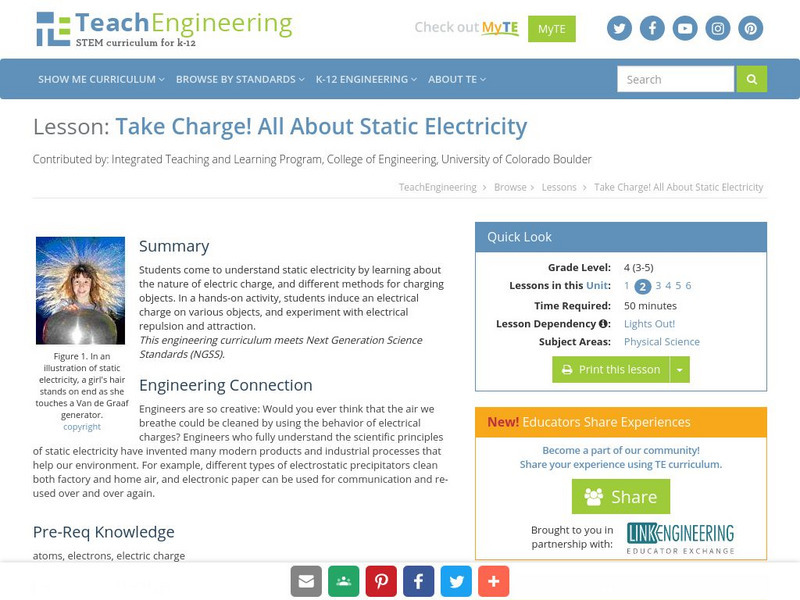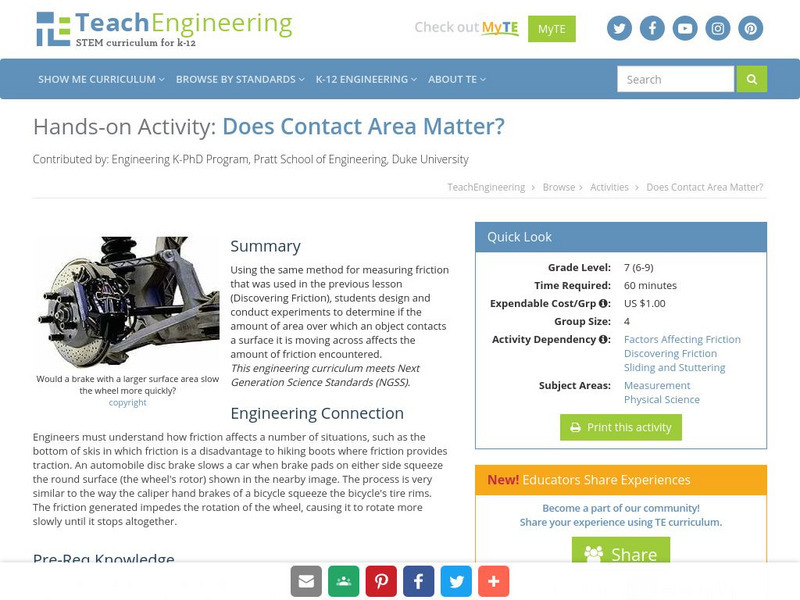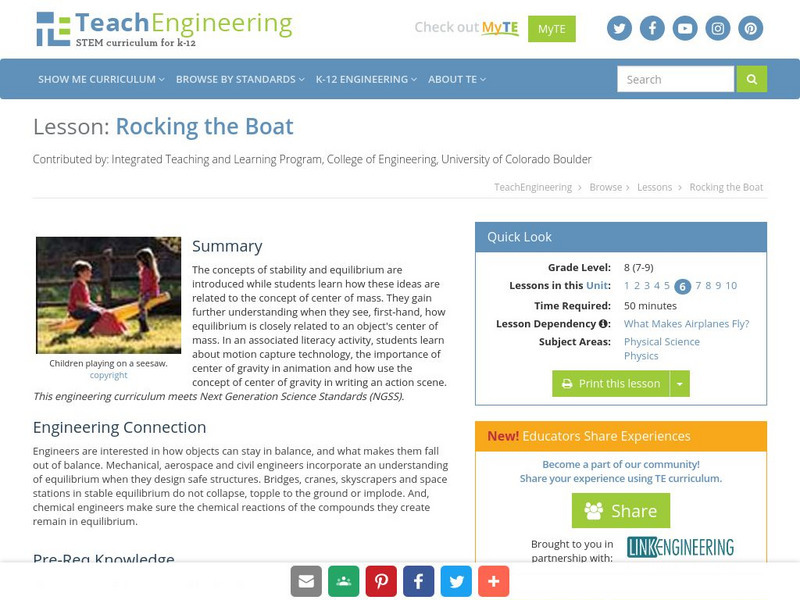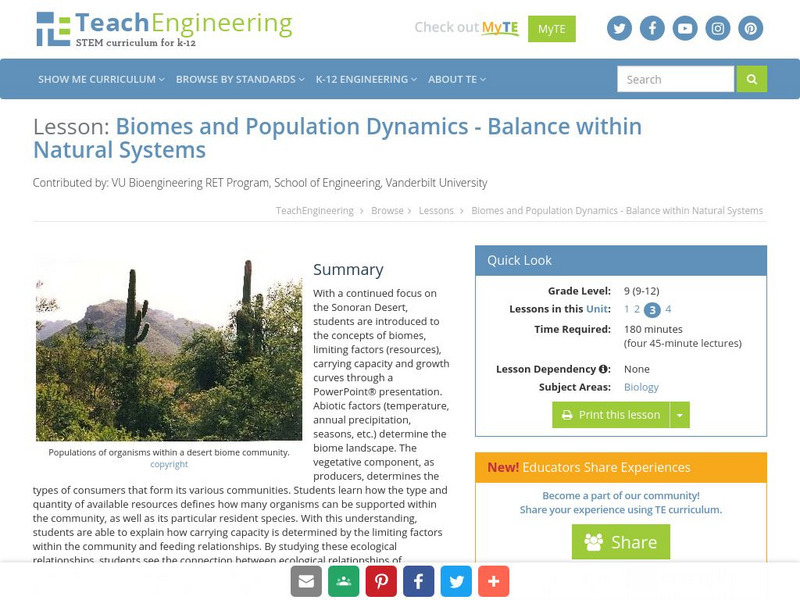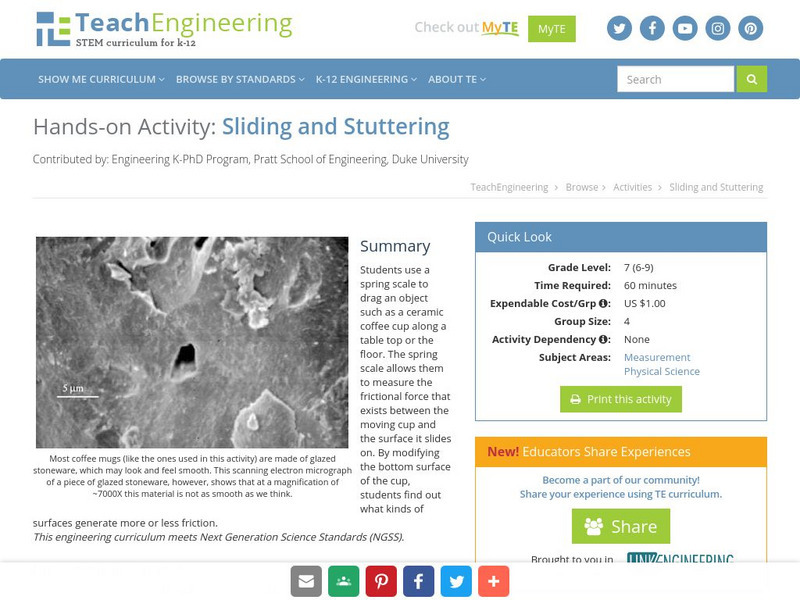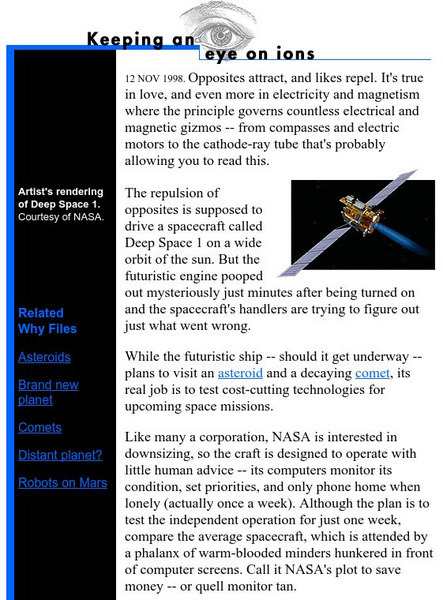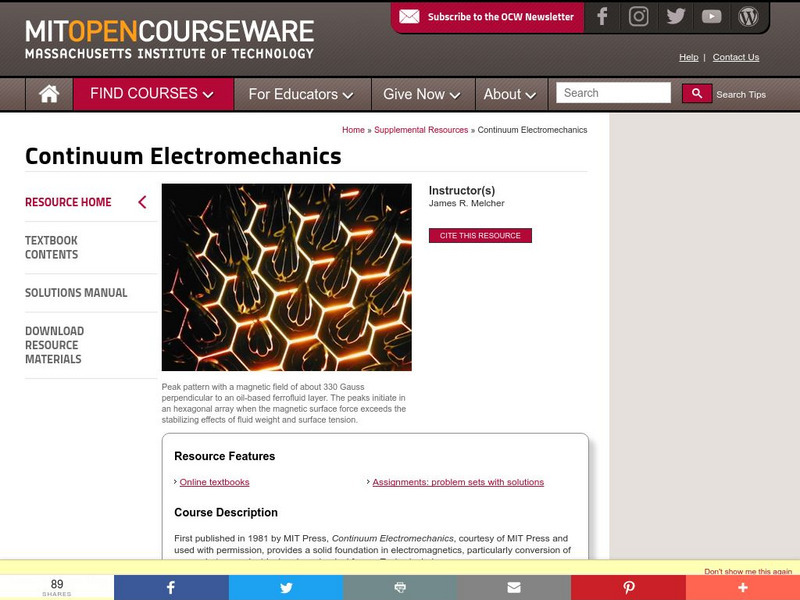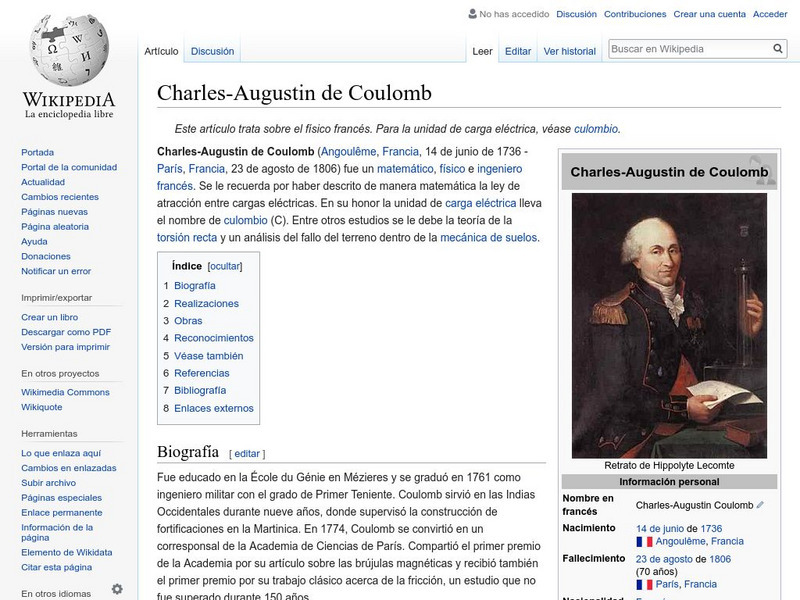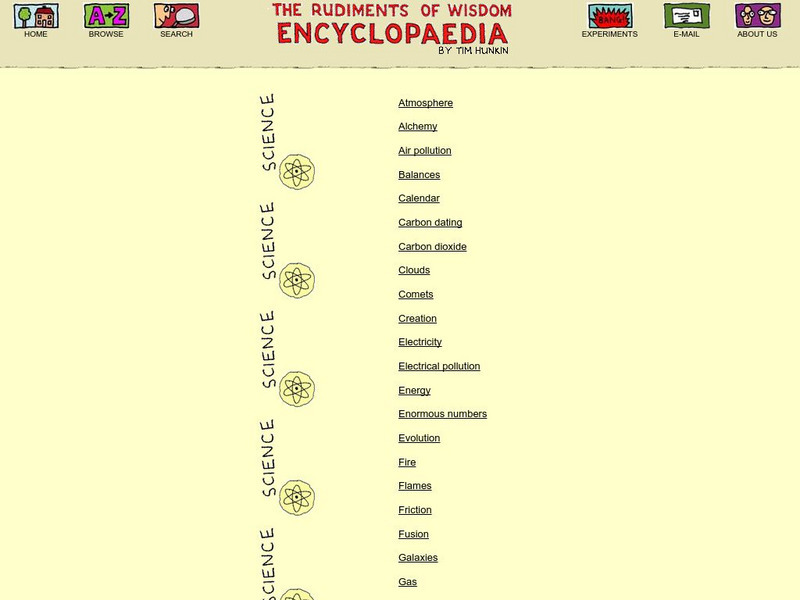TeachEngineering
Teach Engineering: Take Charge!
Young scholars come to understand static electricity by learning about the nature of electric charge, and different methods for charging objects. In a hands-on activity, students induce an electrical charge on various objects, and...
TeachEngineering
Teach Engineering: Does Contact Area Matter?
Using the same method for measuring friction that was used in the previous lesson (Discovering Friction), students design and conduct an experiment to determine if the amount of area over which an object contacts a surface it is moving...
TeachEngineering
Teach Engineering: Tightrope Trials
To learn about the concept of center of mass, students examine how objects balance. They make symmetrical cut-outs of different "creatures" and experiment with how they balance on a tightrope of string. Students see the concept of center...
TeachEngineering
Teach Engineering: Rocking the Boat
The concepts of stability and equilibrium are introduced while students learn how these ideas are related to the concept of center of mass. They gain further understanding when they see, first-hand, how equilibrium is closely related to...
TeachEngineering
Teach Engineering: Biomes and Population Dynamics
This lesson begins with a PowerPoint slideshow that covers important ecological concepts about biomes, limiting factors, carrying capacity, and population growth. Students will look at the population dynamics involved with the diversity...
TeachEngineering
Teach Engineering: Sliding and Stuttering
Students use a spring scale to drag an object such as a ceramic coffee cup along a table top or the floor. The spring scale allows them to measure the frictional force that exists between the moving cup and the surface it slides on. By...
TeachEngineering
Teach Engineering: Factors Affecting Friction
In this lesson plan, learners use previous knowledge about friction to formulate hypotheses concerning the effects of weight and contact area on the amount of friction between two surfaces. In the Associated Activities (Does Weight...
Burke Museum
Burke Museum: Waterlines: Discover & Explore Seattle's Past Landscapes
Seattle is one of the most dramatically engineered cities in the USA. This rich interactive website enables people to see how Seattle's various landscapes have changed over time. The site starts out with an interactive map of the Puget...
University of Wisconsin
The Why Files: Keeping an Eye on Ions
Discusses the development of a new rocket engine that operates by the ion propulsion as opposed to gas propulsion. Well written and great graphics!
TeachEngineering
Teach Engineering: What a Drag
Students learn about friction and drag - two different forces that convert energy of motion to heat. Both forces can act on a moving object and decrease its velocity. Students learn examples of friction and drag, and suggest ways to...
University of Kentucky
Elecroscope Lab
This site is actually a lab from the University of Kentucky Electrical Engineering Department. It is an excellent experiment that can be done at the high school level.
Cosmo Learning
Cosmo Learning: Mechanics of Solids
A collection of video lectures from a course introducing students to the mechanics of solids. Webpage includes forty-one lectures from a professor at the National Programme on Technology Enhanced Learning. Lectures vary in length and...
Massachusetts Institute of Technology
Mit: Open Course Ware: Supplemental Resources: Continuum Electromechanics
College-level electrical engineering and computer science textbook highlighting the applications of continuum electromechanics.
Wikimedia
Wikipedia: Charles Augustin De Coulomb
Spanish-language site lets students discover the life and work of this physicist and engineer, who is known for his studies of electric charges.
University of St. Andrews (UK)
University of St. Andrews: Charles Augustin De Coulomb
A large complete authoritative biography of Coulomb. Five large pictures, over a dozen links to contemporaries, references, a poster, other mathematicians. A fine source.
Rudiments of Wisdom
Rudiments of Wisdom: Science
Browse this index to find fun, hand-drawn cartoons that simplify and explain many science topics, including atmosphere, evolution, fusion, static electricity, and time. Cartoons are created by engineer-turned-cartoonist, Tim Hunkin,...
